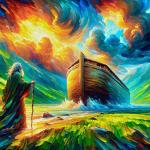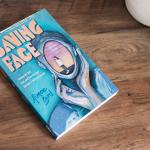 Hermann Bavinck translated by Bert Hielema
Hermann Bavinck translated by Bert Hielema
The Riddle of Life
Grand Rapids, MI: Eerdmans, 2016.
Available at Amazon.com
By Felicity Clift
One hundred and two pages hardly seem adequate to explain all of life’s mysteries, and yet this is exactly what J. H. Bavinck has attempted to do in The Riddle of Life. In this easy-to-read translation by Bert Hielema, Bavinck’s insights on the mystery of life are set out in a logical and concise manner. It is particularly interesting to note that decades have made little difference to the value of such a book and although some of the ideas contained within require mental grappling, Hielema’s translation softens some of the linguistic edges. Originally published in 1940, Bavinck states, ‘Time and circumstances change, but the core of the matter does not’ (p.87), and his conferral of why this is so remains convincing. There are some temporal differences – Bavinck’s reference to being in an age of machines (not technology) or his assumption that most people know about the person of Jesus (in contrast to our increasingly areligious culture) are two instances – yet more significantly, the time between editions serves as testimony to Bavinck’s suggestion that humanity and it’s course does not change dramatically without divine intervention.
In The Riddle of Life Bavinck offers a crash course in theology, philosophy and anthropology, and anyone interested in learning about how we know what we know, or what the start of reasoning is, or anyone who assumes that we can ask the question, ‘Why?’ will benefit from reading this book. As Hielema points out in his note, Bavinck clearly has an evangelistic intent in this writing, using ‘casual’ language to convey profound ideas, and through his smooth translation, Hielema has managed to preserve this (p .vii). In eight pages, for example, Bavinck reveals Jesus the Redeemer to be fully human and fully divine, entirely righteous, entirely loving, and the ultimate prophet, priest and king, who undoes humanity’s ignorance, restores peace with God and gives life to those in his kingdom. Perhaps some would find Bavinck’s swift resolution to God and Jesus Christ less convincing, yet such a crisp elucidation – not even ten pages per chapter – on topics such as where we come from (ch. 5), who we are (ch. 6) and the meaning of life (ch. 7) is impressive and measured. And while these ideas are brief, they are not vague, allowing the reader to consider the potential implications of such an idea, rather than getting lost trying to understand what is being said. Each chapter contains such riches, making this book a relevant and worthwhile read for Christians and seekers alike. Hielema has done the English speaking world a favour in translating this little gem!















